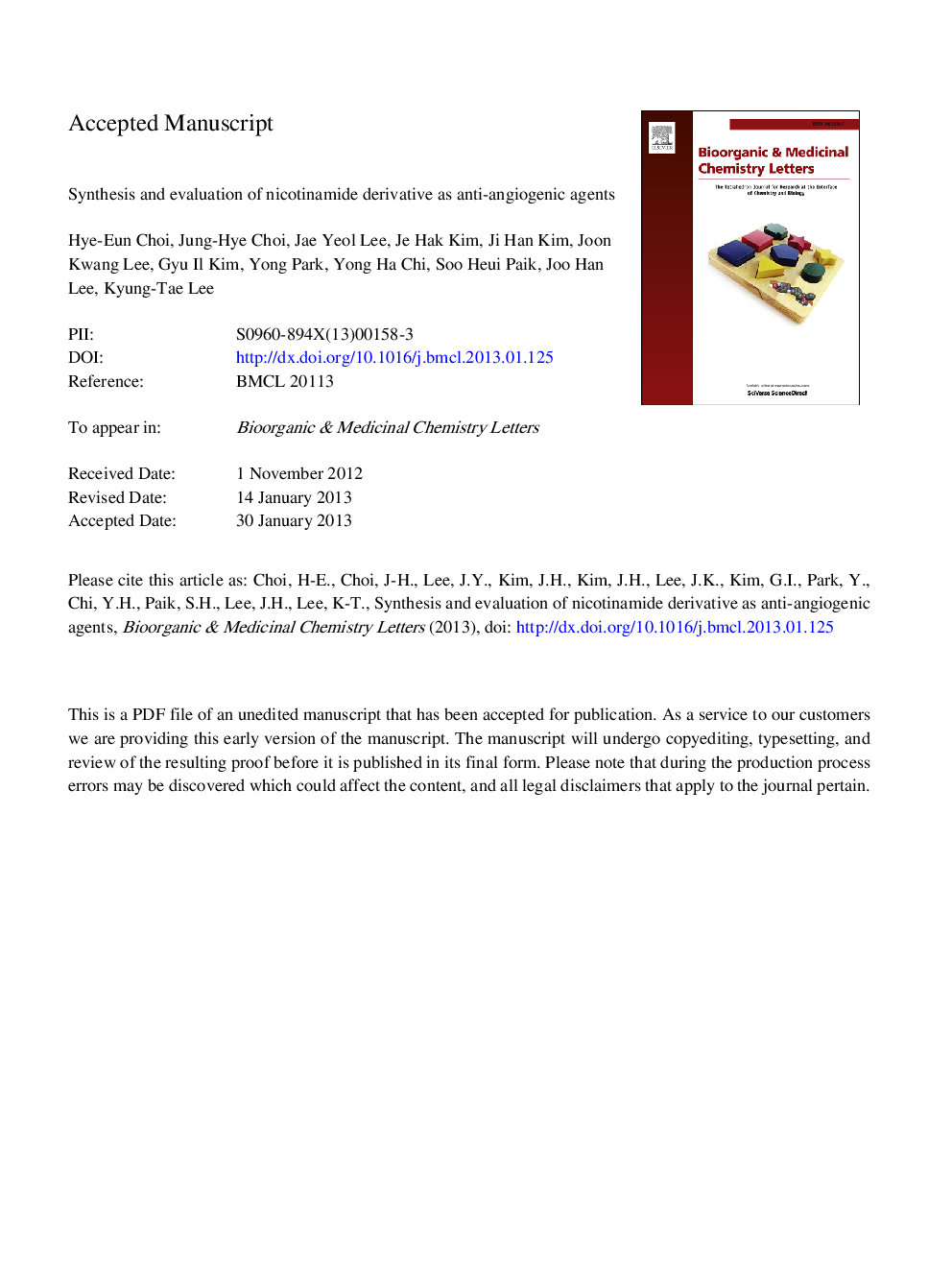| Article ID | Journal | Published Year | Pages | File Type |
|---|---|---|---|---|
| 10587730 | Bioorganic & Medicinal Chemistry Letters | 2013 | 22 Pages |
Abstract
Previously, we have found that BRN-103, a nicotinamide derivative, inhibits vascular endothelial growth factor (VEGF)-mediated angiogenesis signaling in human endothelial cells. During our continuous efforts to identify more potent anti-angiogenic agents, we synthesized various nicotinamide derivatives and evaluated their anti-angiogenic effects. We found that 2-{1-[1-(6-chloro-5-fluoropyrimidin-4-yl)ethyl]piperidin-4-ylamino}-N-(3-chlorophenyl) pyridine-3-carboxamide (BRN-250) significantly inhibited human umbilical vascular endothelial cells (HUVECs) proliferation, migration, tube formation, and microvessel growth in a concentration range of 10-100Â nM. Furthermore, BRN-250 inhibited the VEGF-induced phosphorylation and intracellular tyrosine kinase activity of VEGF receptor 2 (VEGFR2) and the activation of its downstream AKT pathway. Taken together, these findings suggest that BRN-250 be considered a potential lead compound for cancer therapy.
Related Topics
Physical Sciences and Engineering
Chemistry
Organic Chemistry
Authors
Hye-Eun Choi, Jung-Hye Choi, Jae Yeol Lee, Je Hak Kim, Ji Han Kim, Joon Kwang Lee, Gyu Il Kim, Yong Park, Yong Ha Chi, Soo Heui Paik, Joo Han Lee, Kyung-Tae Lee,
